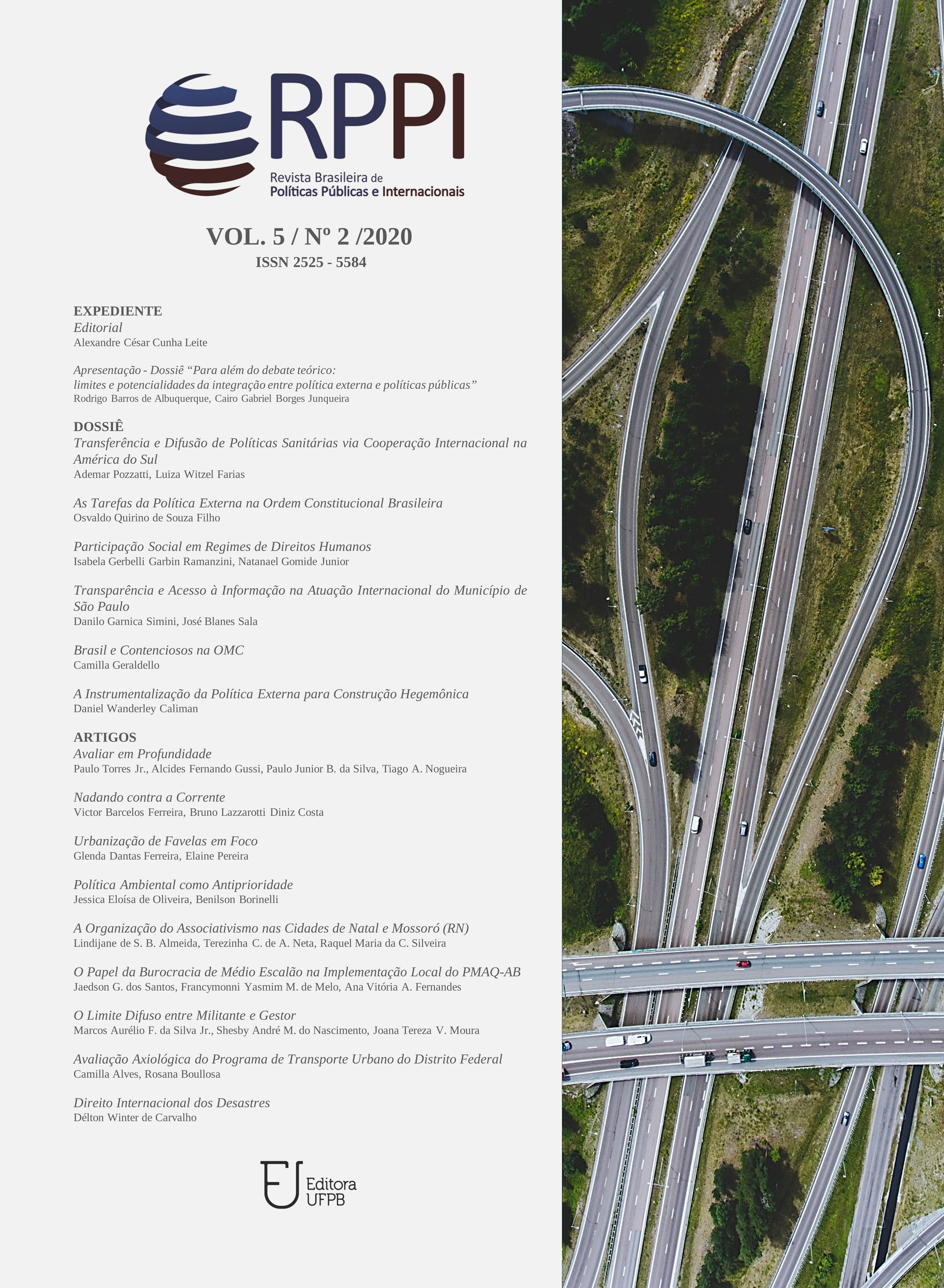Brazil and WTO Dispute Settlement
an analysis on the brazilian decision-making process
DOI:
https://doi.org/10.22478/ufpb.2525-5584.2020v5n2.51808Keywords:
Brazil, WTO, decision-making processAbstract
At the beginning of the 21st century, Brazil, which has always sought to engage in multilateralism, took on a leading role in the World Trade Organization (WTO) from 1999, leading the G-20 (agricultural) and opening several disputes against developed countries , winning the victory in most of them. The disputes that mark this moment of external and internal changes and Brazilian victories are: that of cotton and orange juice (against the United States) and that of sugar (against the European Union). However, despite the victories in the WTO for the respective Brazilian agricultural sectors, the fact that one sector demands from the government the challenge in a multilateral organization against another State that protects its market for imported products can be understood as a last resort and defeat of the exporting sector that failed to negotiate bilaterally with the importing country. In this sense, the aim of this paper is to answer the following questions: why do States decide to enter into disputes at the WTO? What are the relevant factors for Brazil to challenge the protectionism of other countries? Two ways are presented as possible to think about the issue: 1) the decision-making process in foreign policy and the choice of the country's line of action in this field; and 2) the influence of the demanding sector on the formulation and implementation of public policies. To answer the questions, this paper will analyze the first path, reflecting on the choice of the Brazilian line of action to open WTO disputes between 1995 and 2018 and on how the decision-making process took place in the orange juice dispute. With this, it will be verified how the external scenario, the position of Brazilian diplomacy in this scenario and the decision-making process influence the opening of panels at the WTO.
Downloads
Downloads
Published
Issue
Section
License
Autores que publicam nesta revista concordam com os seguintes termos:- Autores mantém os direitos autorais e concedem à revista o direito de primeira publicação, com o trabalho simultaneamente licenciado sob a Licença Creative Commons Attribution que permite o compartilhamento do trabalho com reconhecimento da autoria e publicação inicial nesta revista.
- Autores têm autorização para assumir contratos adicionais separadamente, para distribuição não-exclusiva da versão do trabalho publicada nesta revista (ex.: publicar em repositório institucional ou como capítulo de livro), com reconhecimento de autoria e publicação inicial nesta revista.
- Autores têm permissão e são estimulados a publicar e distribuir seu trabalho online (ex.: em repositórios institucionais ou na sua página pessoal) a qualquer ponto antes ou durante o processo editorial, já que isso pode gerar alterações produtivas, bem como aumentar o impacto e a citação do trabalho publicado (Veja O Efeito do Acesso Livre).




_.jpg)






.png)


.jpg)
_.png)
